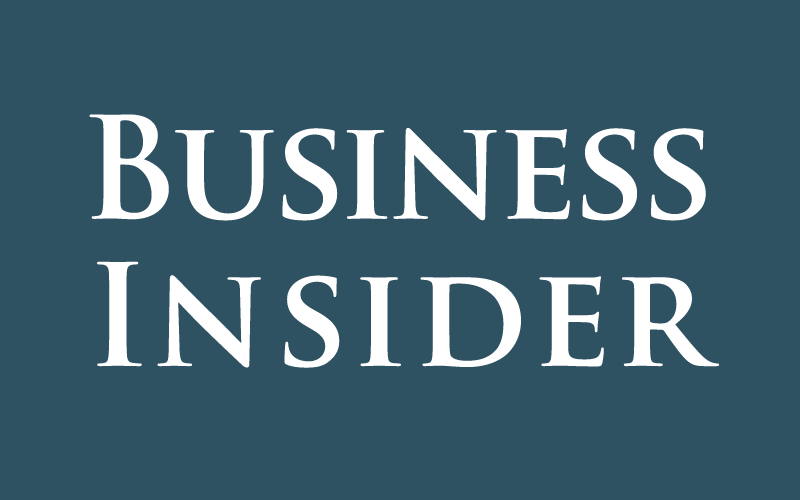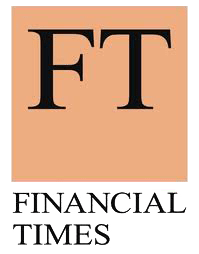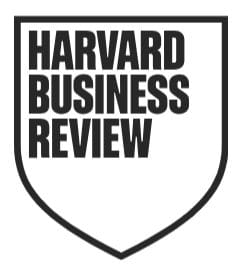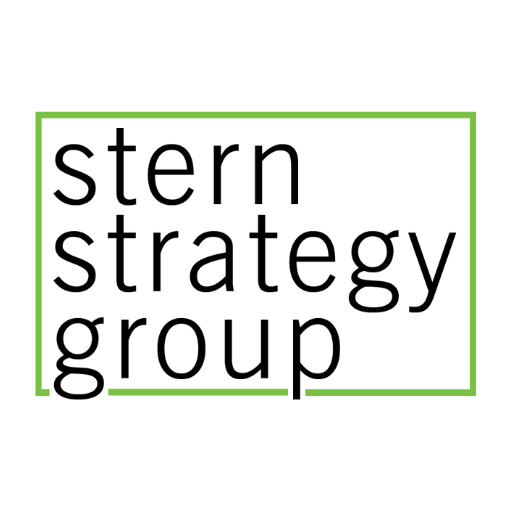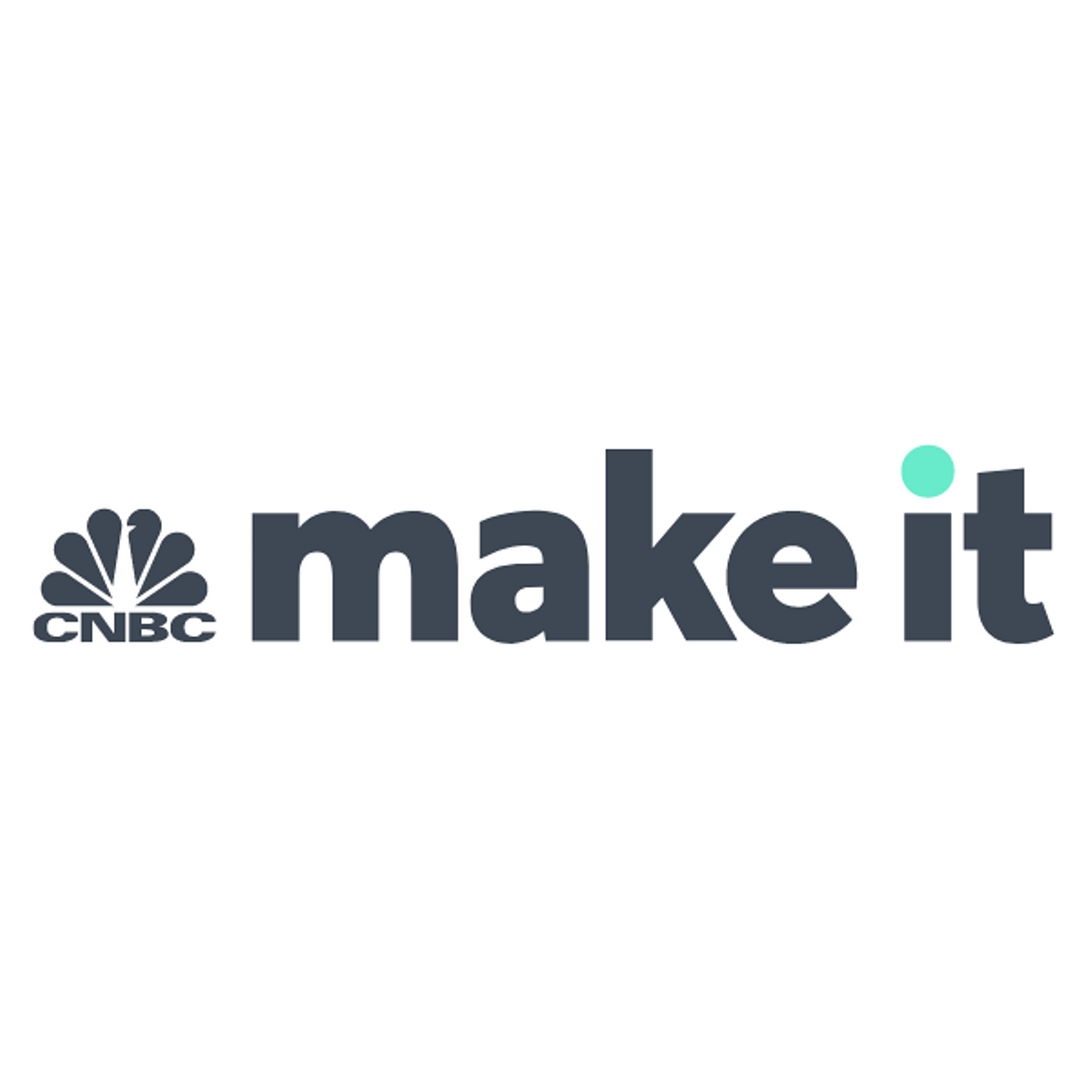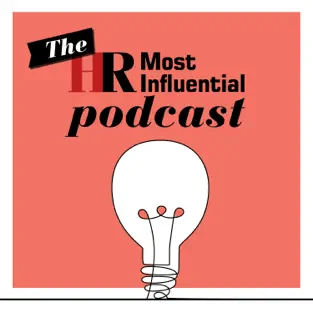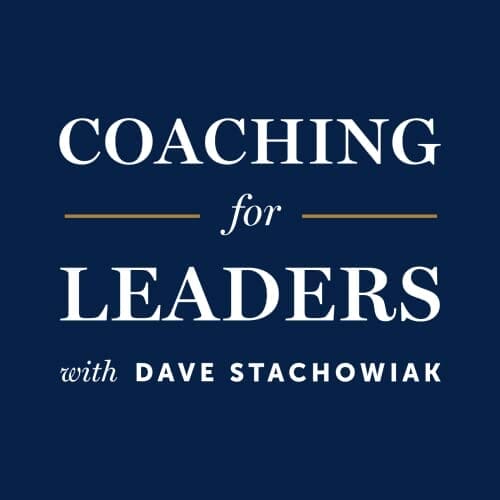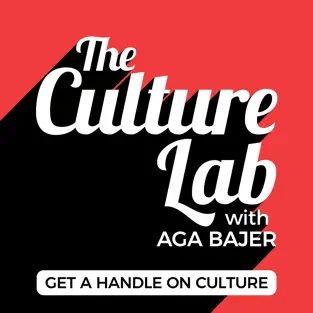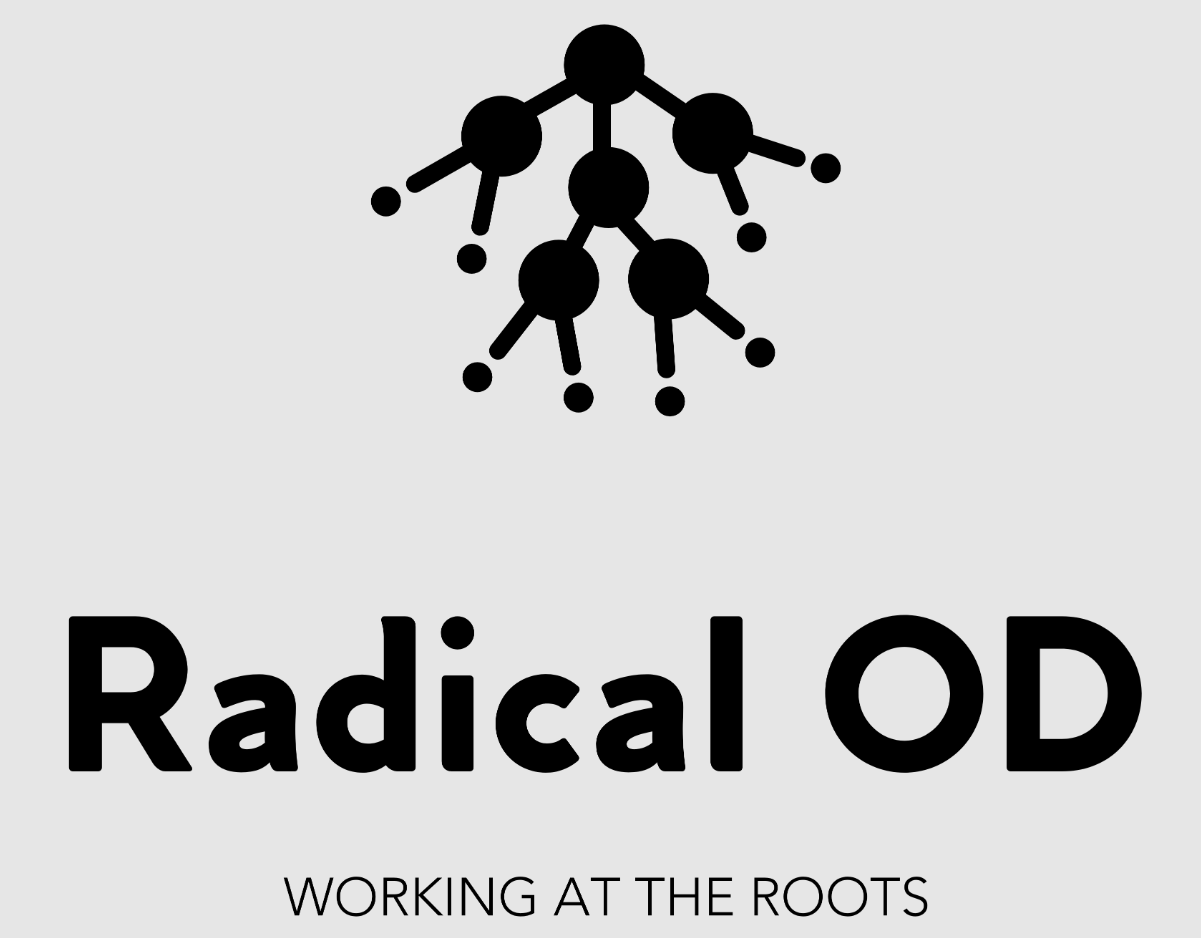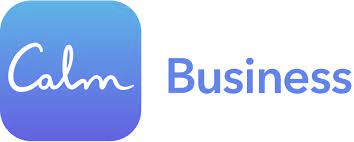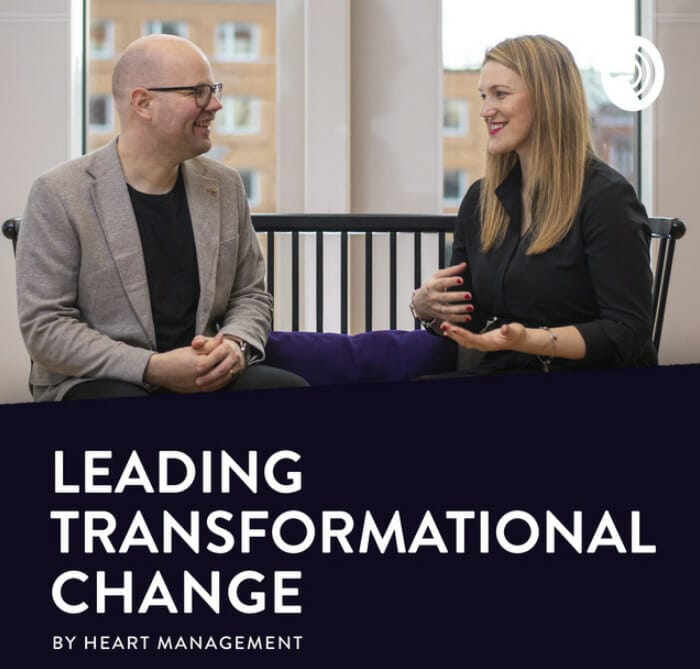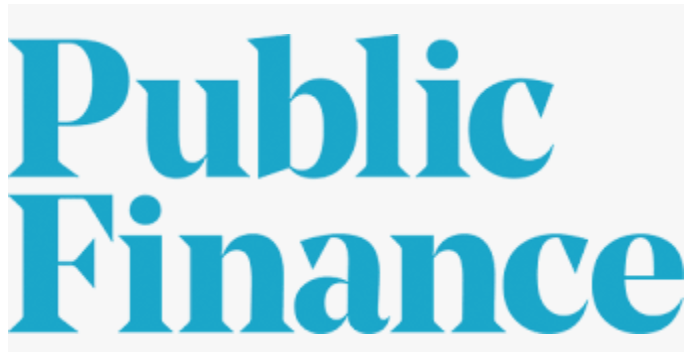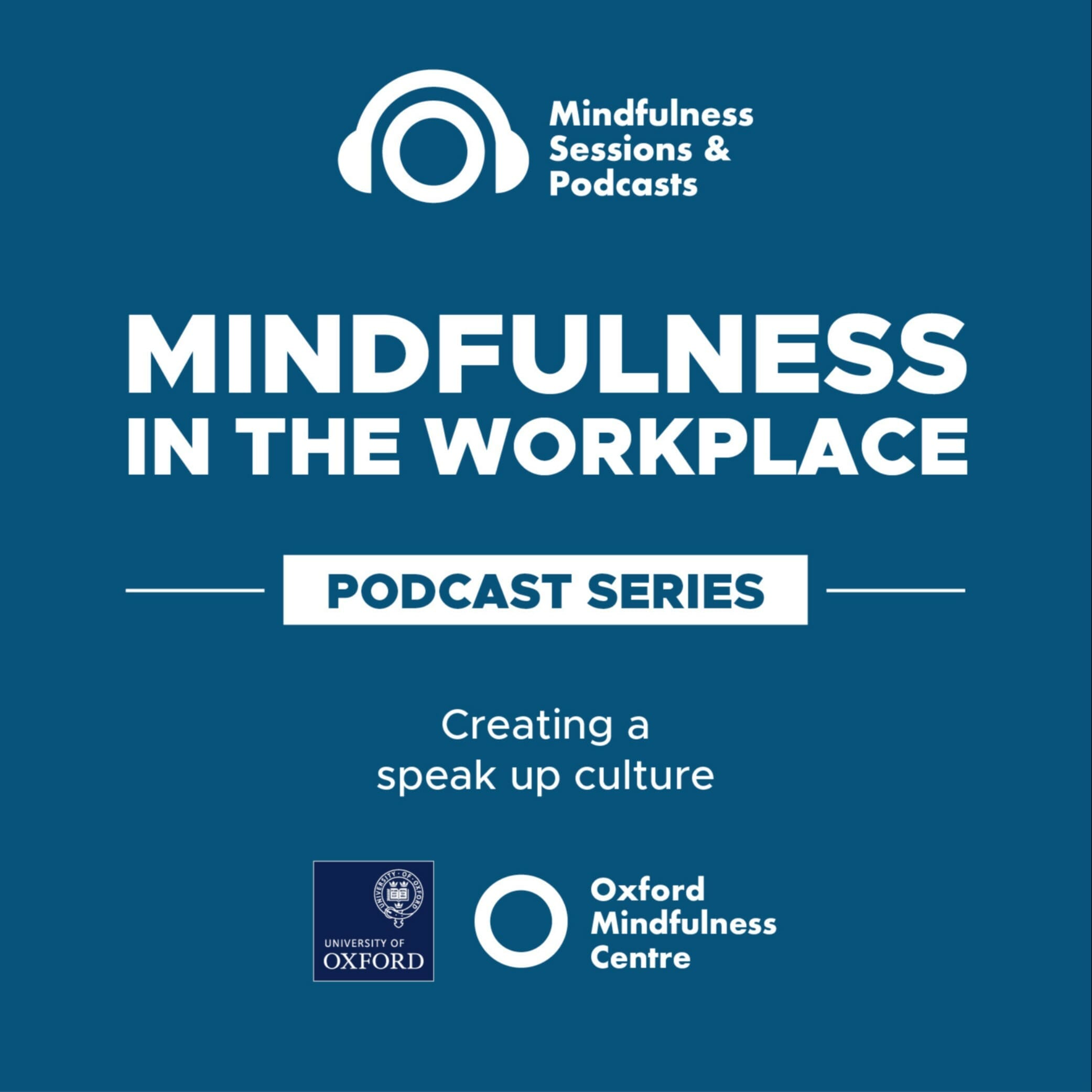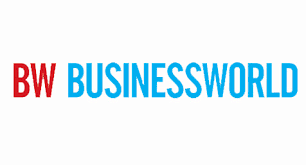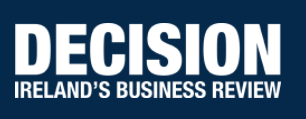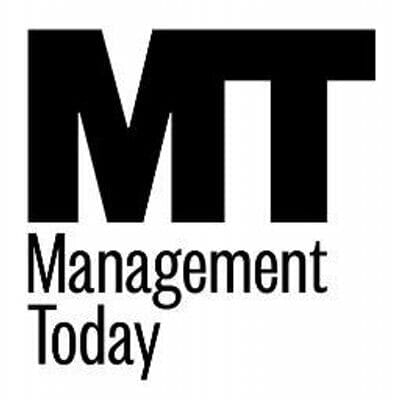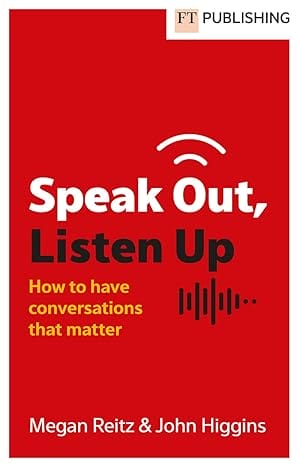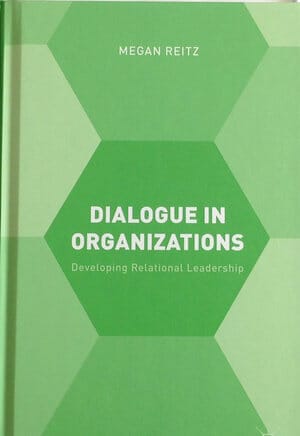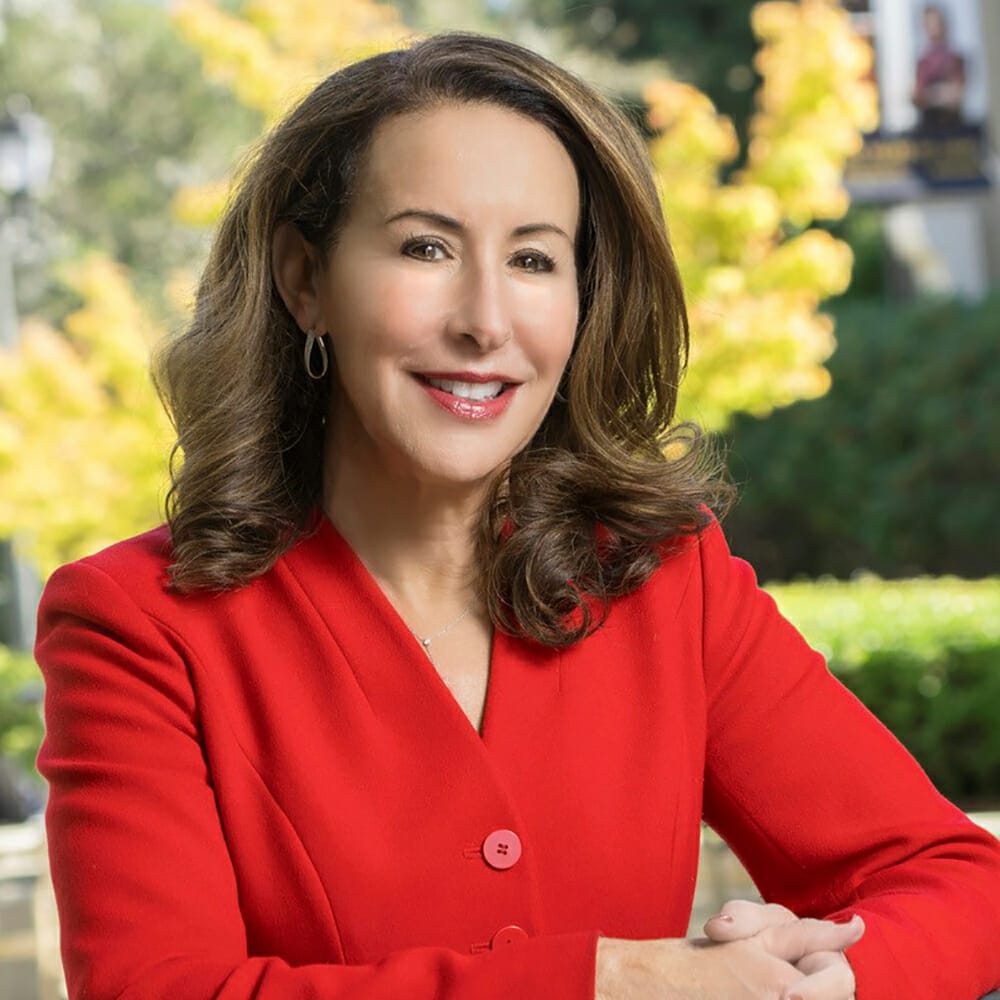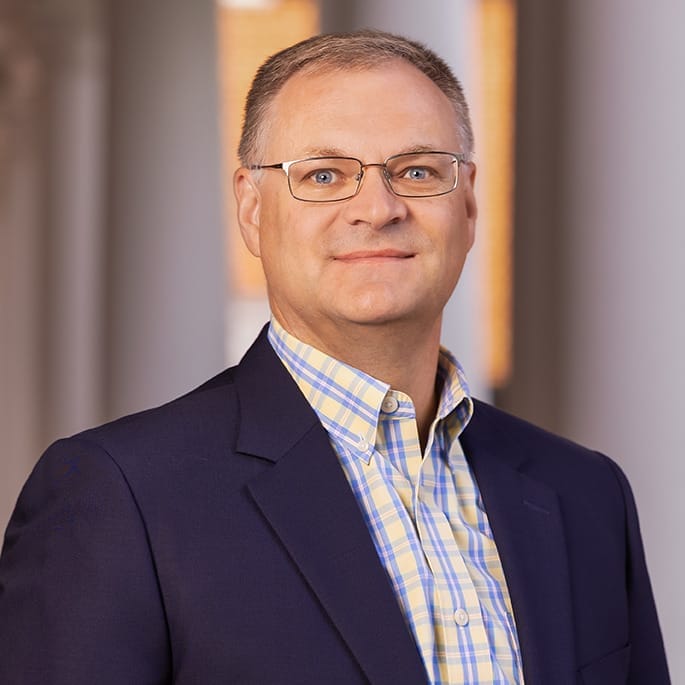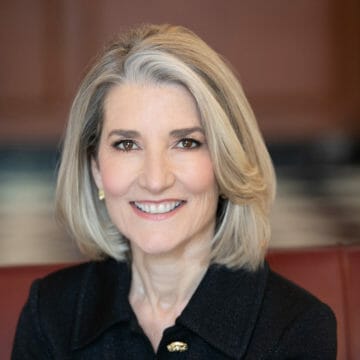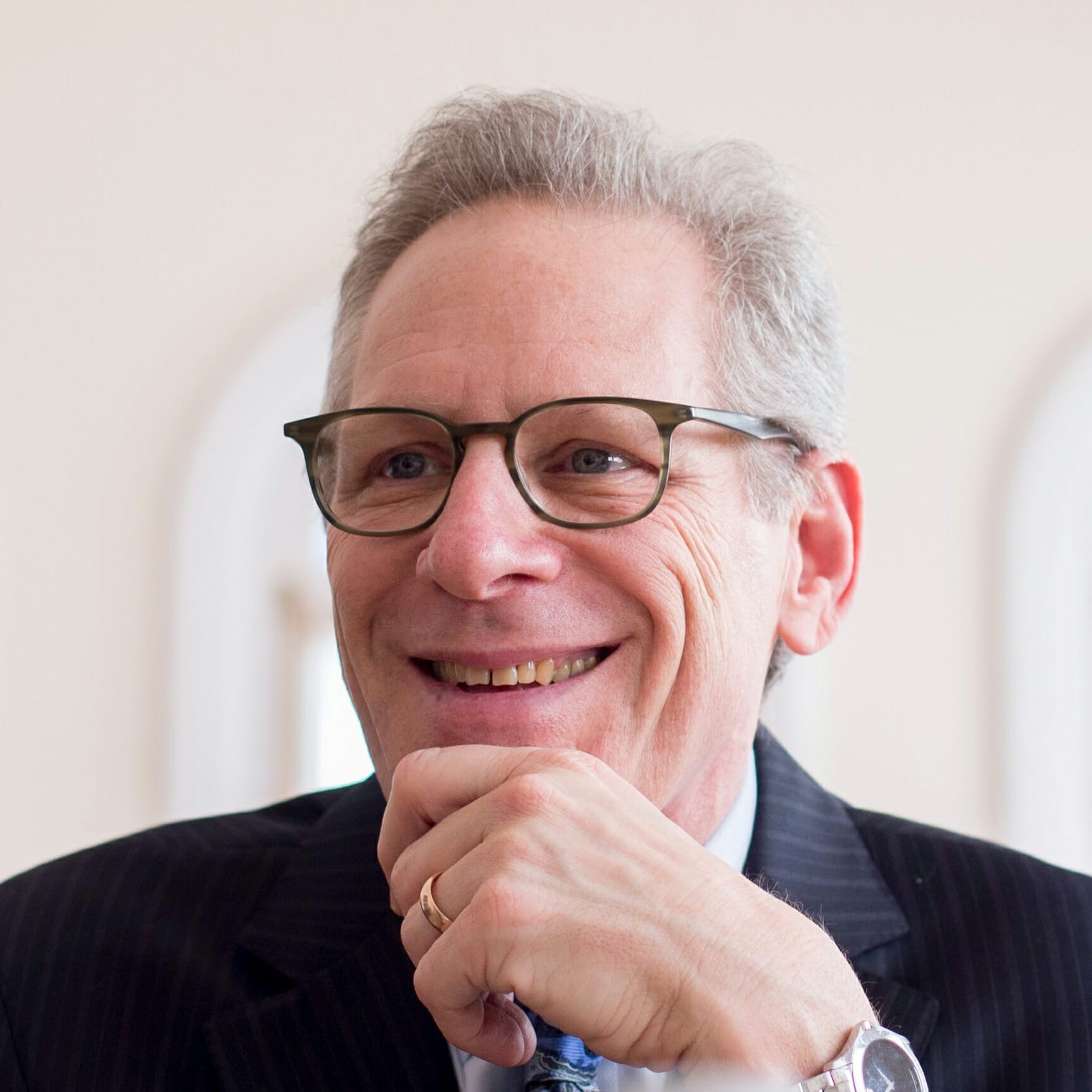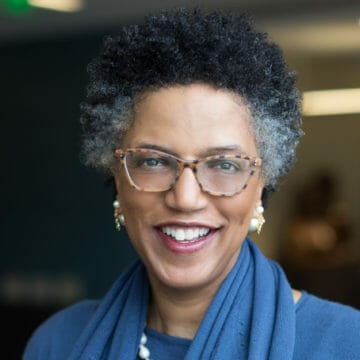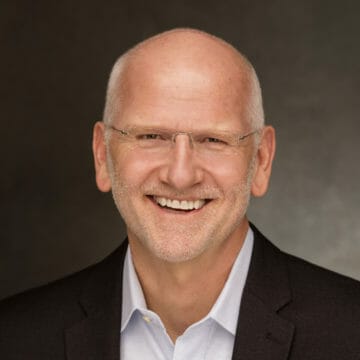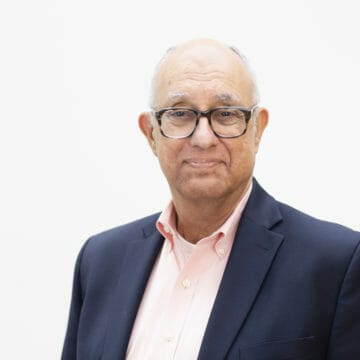Videos
Learn More About Megan Reitz
How can leaders enable employees to talk about organizational problems so they can be addressed? How can they invite employees to challenge and offer ideas to stay agile and innovative? And in an age of employee activism, how can leaders ensure that people of diverse backgrounds and value systems can work well together?
According to Megan Reitz (pronounced RATES), Associate Fellow at Saïd Business School at Oxford University and professor of leadership and dialogue at Ashridge Executive Education at Hult Business School, leaders must create psychologically safe environments where people feel it is safe to speak up without fear of retribution.
An executive coach, researcher and author of the book “Speak Up: Say What Needs to be Said and Hear What Needs to be Heard” (Financial Times Publishing, July 2019), Reitz helps leaders become more aware of their “conversational habits” — what they speak up about and what they don’t, whose voices they listen to and whose they discount. Through a deeper understanding of power dynamics, leaders are able to spot how and when they (often inadvertently) silence others. They become more able to create a culture where employees can safely and openly share ideas. As a result, leaders get the feedback they need about what’s really happening in their organizations and teams end up communicating, collaborating and innovating more effectively.
“It takes courage to speak your mind to a person in power,” says Reitz who was named in 2023 and 2021 among the top 50 management thinkers in the world by Thinkers50. “But equally, if you are the person in power, it takes enormous humility and skill to be able to invite, then listen.” Her enlightening TEDxHultAshridge talk, “How Your Power Silences Truth,” artfully explains how leaders can strike a balance between guiding and being guided by the people they oversee. Her practical frameworks for promoting psychological safety help organizations address issues around trust, ethics, diversity, equity and inclusion, and communication – especially in remote or hybrid workplaces where many cues can get lost.
Ranked among HR Magazine’s Most Influential Thinkers and author of “Mind Time: How Ten Mindful Minutes Can Enhance Your Work, Health and Happiness” (Harper Thorsons, 2018), Reitz’s research also explores the neuroscience of leadership and the links between mindfulness and leadership capacities for the 21st century.
“Leaders who are more mindful have the capacity to pay attention, on purpose, in the present moment,” says Reitz. “They are more aware of themselves, others and the world around them. This allows them to respond appropriately rather than react without thinking.” Reitz’s stress-reducing mindfulness practices offer executives a powerful opportunity to become more resilient, empathetic and focused leaders. They also provide tools for disrupting conversational habits that do not serve them or their teams.
Reitz emphasizes that speaking up is a two-way street. Leaders who are mindful of the signals they send can counteract the traps of silencing by opening up dialogue before the employee has to ‘be courageous’ in order to speak up. Her work is particularly urgent right now as remote and hybrid work settings require leaders to be more proactive about listening to employees and inviting in their thoughts. Her win-win approach allows organizations to learn what employees are thinking and where problems may be hidden, while offering employees the comfort of working for a leader who is more relatable, approachable and open-minded. Her focus is on enabling organizational dialogue in order to sustain more ethical, compassionate and productive workplaces where employees can flourish.
Megan Reitz is Professor of Leadership and Dialogue at Ashridge Executive Education, Hult Business School where her research, speaking and executive education programs focus on change, dialogue and mindfulness. She is on the Thinkers50 radar of global business thinkers and was ranked among HR Magazine‘s Most Influential Thinkers of 2019. In 2021, Reitz was shortlisted for the Thinkers50 Breakthrough Idea Award, which celebrates a eureka moment in management thinking.
Before joining Ashridge, Reitz was a consultant with Deloitte, surfed the dot-com boom with boo.com and worked in strategy consulting for The Kalchas Group, now the strategic arm of Computer Science Corporation. She was educated at Cambridge University and has a PhD from Cranfield School of Management. She is an accredited executive coach with Ashridge and The School of Coaching.
Megan Reitz is available to advise your organization via virtual and in-person consulting meetings, interactive workshops and customized keynotes through the exclusive representation of Stern Speakers & Advisors, a division of Stern Strategy Group®.
Speaking Truth to Power: Encouraging Open Dialogue
Many employees have a burning desire to voice their opinions regarding important organizational changes, yet companies may not have a culture that encourages them to do so. When leaders become aware of the link between leadership and mindfulness, says Hult International Business School professor Megan Reitz, space for speaking truth to power is born. In this presentation based on her engaging TEDxHultAshridge talk, Reitz teaches leaders how to navigate power differences and transform their workplace cultures so employees feel free to openly communicate.
Fostering Psychological Safety in the Workplace
How can leaders foster a culture where employees feel free to speak up about workplace concerns without fear of retribution? How can employees be encouraged to challenge conventional thinking and offer new ideas so teams can remain agile and innovative? And how can organizations both avoid scandal and facilitate overall healthy corporate cultures? A renowned expert on leadership and dialogue, Hult International Business School professor Megan Reitz teaches leaders that having a psychologically safe culture requires them to notice their own habits and be mindful of the signals they’re sending which may be deliberately or inadvertently silencing others. In this presentation, Reitz shares evidence-based communication tools leaders can use to encourage employees to speak up and ensure all voices are heard so vital knowledge and innovative ideas can be regularly exchanged.
Leading in an Age of Employee Activism
Increasingly, employees are starting challenging conversations with management: “So, what’s our policy on Black Lives Matter, gender equity, climate change, human rights in our supply chain?” Some leaders respond by saying their organization is apolitical, or they hand off hard-to-avoid issues to diversity, equity, and inclusion (DEI) managers. Worse, they don’t respond at all. Silencing employees works against organizations in a number of ways. Two big drawbacks: employees may not reveal hidden problems which can grow, or they may end up leaving if the values of the organization do not align with their own, explains Megan Reitz, professor of leadership and dialogue at Hult International Business School, and co-author of the acclaimed book “Speak Up: Say What Needs to be Said and Hear What Needs to be Heard.” In this talk, she shares her research-backed framework which helps leaders become aware of their responses to employee activism and serves as a playbook for proactively and thoughtfully engaging with employees. Leaders come away with a stronger ability to navigate power differences and transform their workplace cultures. As a result, employees are more likely to openly communicate, and leaders are able to find out what’s really going on in their organization and harness much-needed ideas for tackling the ‘wicked’ business, social and environmental challenges that now face us.
The Power of Mindful Leadership
What role does mindfulness play in leadership? Hult International Business School Professor Megan Reitz’s research shows that mindfulness opens doors for leaders to become more “present,” enabling them to respond rather than react to circumstances, which in turn builds resilience, improves focus, and allows them to become better listeners and decision makers. Based on her book “Mind Time,” Reitz teaches participants tools for becoming more present, mindful, less stressed, and more effective leaders who are viewed as more approachable and relatable.
Having the Conversations that Matter
We need all sorts of conversations in order to thrive individually and organizationally. While conversations about tasks and short-term targets are vital, if they take over, we can find ourselves with less and less time to have conversations that focus on relationships, creativity, reflection and purpose. These latter conversations are less tangible, and their benefits are longer term – however without them organizations cannot survive. Megan Reitz, Ph.D, has been researching conversations at work for more than a decade. In this talk, she will share the importance of ‘conversational habits’ and how leaders can become stuck in a ‘busyness’ cycle that, over time, can lead to employees feeling less connected, less able to challenge, give feedback and learn. Audiences will be guided to consider what conversations they prioritize, they’ll understand that leaders are likely to be unaware of ‘missing’ conversations and they will learn practical ways they can ensure their teams are having conversations that matter at work.
Making It Safe to Fail – In the Right Way
Failure is not a subject that is spoken about frequently in organizational settings even though it is inevitable and can be a vital and constructive means of moving innovation forward and improving performance. So how can leaders make it safe to talk about failure in the right way? According to psychological safety expert Megan Reitz, Ph.D., the right kinds of failure can be powerful learning opportunities. In this presentation, she investigates the conditions that prevent discussions about failure – both speaking up about it and listening to others’ experiences. Audiences will leave with actionable strategies for encouraging reflective and thoughtful conversations about failure, turning it into an important learning asset.
Giving Ourselves Permission to Pause
Many employees feel they are in a state of constant ‘busyness’ where attention is given increasingly to short-term tangible tasks to the detriment of creativity, relationships and learning. This results in high stress and, over time, lower productivity. Pausing in order to make wiser choices in what we do and how we show up with one another is vital – it doesn’t slow things down, in fact, it is quite the opposite. How do we know when it’s time to pause, both individually and collectively? According to leadership expert Megan Reitz, Ph.D., it’s vital to find a balance between attending to short-term tasks and to less tangible longer term, relational tasks. She explores why we get caught in cycles of busyness, shares her AIM framework (allowing, inquiry, meta-awareness), and provides practical experiences of pausing, attending and ‘AIMing’ both individually and in teams. Attendees will be empowered to create the space in their minds to notice the patterns they are in and choose different, thoughtful responses.
Leading in an Age of Employee Activism (Audio)
February 28, 2022
How Leaders Can Respond to Increasing Employee Activism
January 28, 2022
Leading in an Age of Employee Activism
January 19, 2022
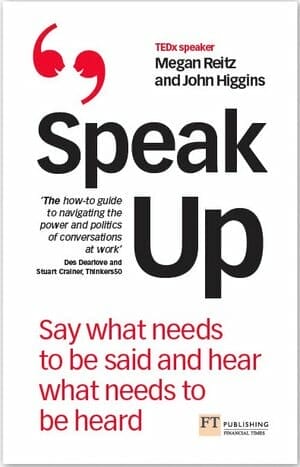
Speak Up: Say What Needs to be Said and Hear What Needs to be Heard
(Financial Times Publishing, 2019)
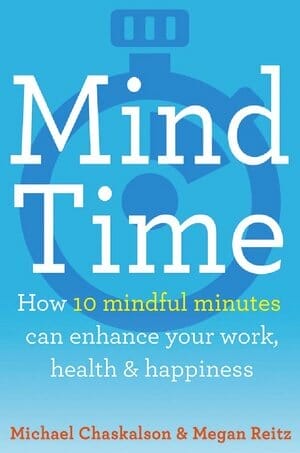
Mind Time: How Ten Mindful Minutes Can Enhance Your Work, Health and Happiness
(Harper Thorsons, 2018)
Megan Reitz, professor of leadership and dialogue at Hult International Business School, and co-author of the acclaimed book “Speak Up: Say What Needs to be Said and Hear What Needs to be Heard,” is a highly sought-after speaker, advisor and educator. She helps leaders in every sector become more aware of their “conversational habits” — what they speak up about and what they don’t, whose voices they listen to and whose they discount. Through a deeper understanding of power dynamics, leaders are better able to create a culture where employees can safely and openly share ideas. As a result, leaders get the feedback they need about what’s really happening in their organizations and teams end up communicating, collaborating and innovating more effectively. Reitz’s research-backed framework serves as a playbook for proactively and thoughtfully engaging with employees. During virtual or in-person advisory meetings or executive education workshops, Reitz can cover any or all of the following topics which can be customized to meet the needs of your organization and the size of your audience.
- Improving Innovation, Agility and Collaboration
- Transforming Workplace Culture
- Addressing Employee Activism
- Strengthening Diversity, Equity and Inclusion Programs
- Becoming a Leader Who Listens
- Reducing Employee Turnover
- Making Spaces for Differences
- Encouraging Employees to Speak Up
- Examining Conversational Habits
- Uncovering and Addressing Hidden Organizational Problems
- Supporting Employees by Giving Them a Voice
“Megan, transformational changes in our leadership culture were catalysed by you and your approach to open our leaders’ thinking, and challenging their perspectives helped us to elevate their self-awareness and reinforce their commitment to make things better. For this, we will always be grateful to you. On a personal note, I wish to tell you that I learned much from you and I am continually inspired by your work and example.”
Praise for “Speak Up”
“A powerful book on an important topic. ‘Speak Up’ helps us understand the subtle elements that contribute to our holding back valuable ideas and observations. Their TRUTH framework – which is as practical as it is rigorous – identifies essential elements to help individuals find their voice.”













